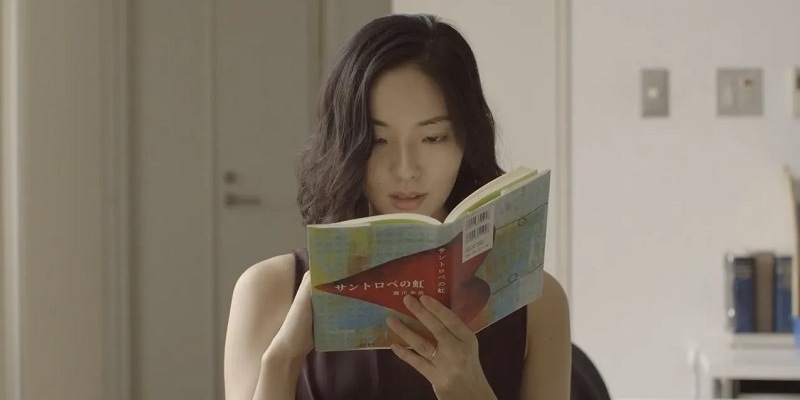
Review by Eric Hillis
Directed by: Ryûsuke Hamaguchi
Starring: Kotone Furukawa, Ayumu Nakajima, Hyunri, Kiyohiko Shibukawa, Katsuki
Mori, Shouma Kai, Fusako Urabe, Aoba Kawai
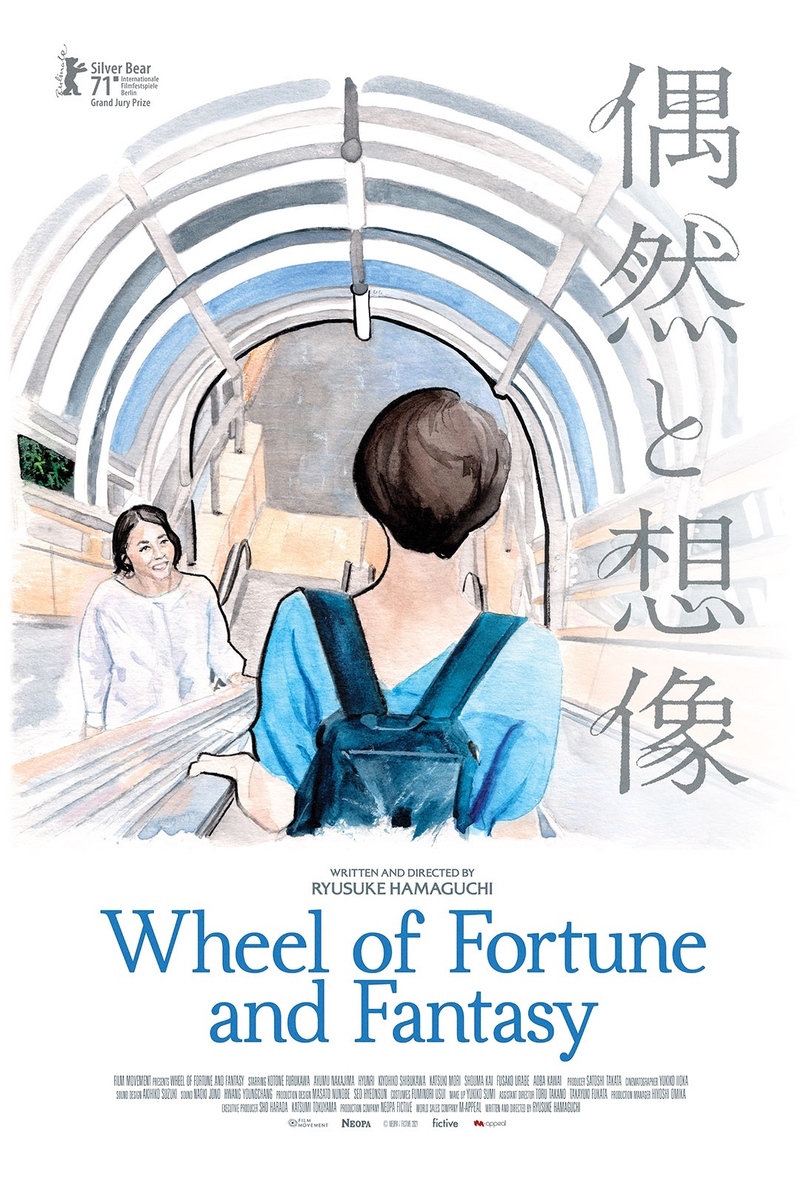
If you're lucky, an anthology film will deliver one good segment out of
its collection of three, four or more individual stories.
Writer/director Ryusuke Hamaguchi's
Wheel of Fortune and Fantasy is the rare portmanteau drama
that keeps you sufficiently gripped through each of its segments. If
this were a short story collection it would be a page turner.
The three segments are really short films in their own right. They're
connected by a thin tissue of chance encounters and characters learning
something about themselves through these moments of coincidence.
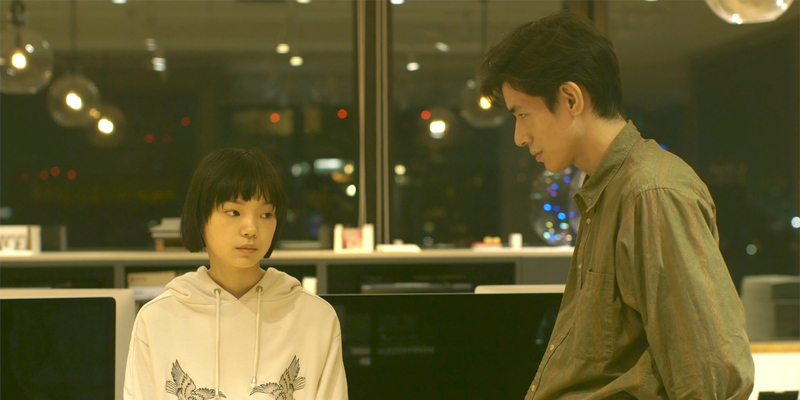
The first story, 'Magic (Or Something less Assuring)', begins with a
lengthy cab ride shared by young model Meiko (Kotone Furukawa)
and her art director friend Gumi (Hyunri Lee). The latter tells
of her perfect new boyfriend, blathering on endlessly about how dreamy
he is and how she wanted to sleep with him on the first date but
couldn't bring herself to do such a thing. Meiko pieces together enough
clues to realise Gumi has fallen for her own ex, Kaz (Ayumu Nakajima), whom she later pays a visit.
'Magic' is the slightest of the three segments but sets us up nicely
for the movie. As with the other segments, it plays out in less than a
handful of lengthy conversations, written in a naturalistic manner, free
from the stylisation of most movie dialogue. There's something of the
great Turkish filmmaker Nuri Bilge Ceylan in how the conversation
between Meiko and Kaz takes so many tangents that a few minutes in
neither participant is sure what the original point they wished to make
really was. It closes with a nice riff on the now well-worn movie cliché
of a violent incident playing out, only for it then to be revealed it
was merely imagined by the protagonist (think John Cusack bashing Tim
Robbins' head in with a phone in High Fidelity).
The second segment 'Door Wide Open' takes its name from the modern
practice of college lecturers leaving their office doors open while
engaging with students, lest they be accused of impropriety. Wastrel
Sasaki (Shouma Kai) has failed to graduate and must repeat a year
of college thanks to the low marks given by his French professor Segawa
(Kiyohiko Shubukawa). Sasaki devises a plan for revenge,
convincing his friend with benefits, mature student Nao (Katsuki Mori), to seduce the professor and record his response with her
phone.
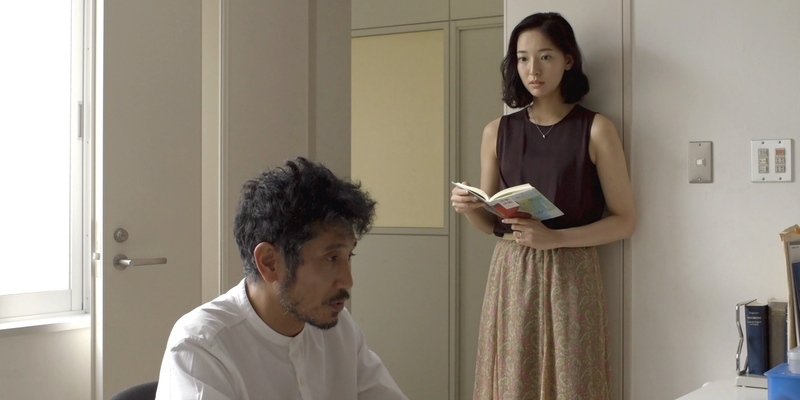
Nao agrees but Sasaki's plan backfires when Nao finds herself drawn to
the taciturn professor. Reading an erotic passage from his award-winning
novel, Nao becomes turned on, and Sasaki is similarly aroused by hearing
his words spoken by a beautiful woman. There's a sly condemnation of
Japanese sexual mores here, but they might easily be applied to our
increasingly prudish western world. Sasaki has pegged his professor as a
potential pervert simply because he writes such graphic depictions of
sex, but the professor admits it was simply a case of bowing to the
pressures of the market.
The final story, 'Once Again', could have been expanded into a feature,
so ripe is its premise. An opening scrawl explains that the story takes
place in an alternate near future where a computer virus has resulted in
the internet having been completely shut down for a couple of years
while the powers that be try to figure out a way to disable the virus.
I'm not sure what it says about me that I found the idea of this
fictional pandemic more frightening than the real life one we're
currently two years deep into.
This premise doesn't really play into the resulting drama save for the
lack of the internet seems to have brought people out of their shell.
Shy lesbian Moka (Fusako Urabe) plucks up the courage to attend a
high school reunion, hoping to be reunited with her first love. Alas the
woman isn't there, but a few days later she happens to bump into her
lost love, Nana (Aoba Kawai), at a train station.
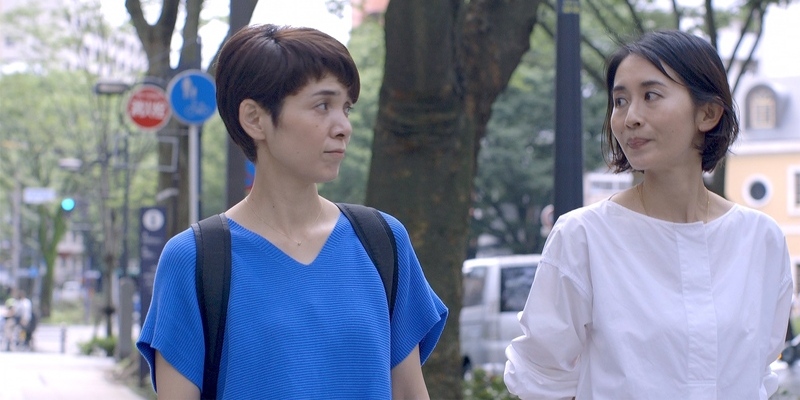
Except Nana isn't her first love at all, but a stranger who mistook
Moka for someone she once knew herself. To make the most of their odd
encounter, Moka and Nana decide to role play as the women they each
mistook the other for, speaking, for what seems like the first time, to
someone else about years of loss and regret. In doing so, the two women
ironically form a bond, leaving us wondering if they might find what
they were really looking for after all.
With Wheel of Fortune and Fantasy, Hamaguchi gives us two great dramatic sketches and one quite
satisfying one. But what's great about all three is that they leave us
wondering where their protagonists will go from here. The great movie
characters continue to exist once the credits roll, something that
occurs not once but three times within the two hours of Hamaguchi's
film. Wheel of Fortune and Fantasy is my first experience
of Hamaguchi - whose other 2021 film, Drive My Car, has been similarly lauded by critics on the festival circuit – and I
look forward to catching up with his back catalogue and whatever lies
ahead from this talented storyteller.

